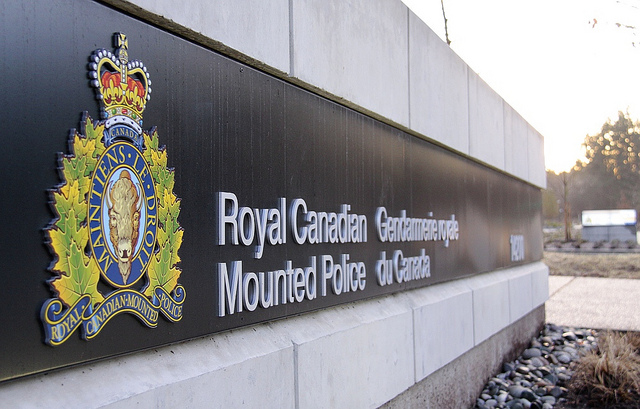Like this article? rabble is reader-supported journalism. Chip in to keep stories like these coming.
Immediately after the Brussels attacks, an engineering student from the University of Waterloo was arrested by the Royal Canadian Mounted Police (RCMP). Although Public Safety Minister Ralph Goodale publicly declared that Canada wasn’t under any additional or specific terrorist threats, the RCMP chose to arrest the suspect during a time of fear.
This is not the first time. One can only remember that the arrest and charging of Chiheb Esseghaier and Raed Jaser, both accused and convicted in the Via Rail trial, took place on April 22, 2013, within a week after the Boston Marathon Bombing. In the aftermath of such tragic events, the population is scared and continually bombarded with countless images of destruction and devastation. Emotions run high and the pressure of finding the culprits or their associates is equally high within police forces.
But from a PR point of view, it is also very easy for security and intelligence agencies to “sell” their cases to the public. The former Conservative government used to choose these particular tragic moments to introduce new controversial anti-terrorism legislation. For instance, Bill C-44, which extended the powers of the Canadian Security Intelligence Service (CSIS), mainly with the protection of intelligence sources, was tabled in the House of Commons on October 27, 2014, one week after the Parliament Hill shooting.
What is troubling in this recent arrest is not only the timing, but the basis of it.
Kevin Omar Mohamed was first arrested as part of a peace bond ordered under Section 810.011 of the Criminal Code. He was also charged with weapons offences. The RCMP evoked the “fear of terrorism” provision included in the Criminal Code.
This is a direct implication of some prerogatives of Bill C-51 related to the promotion of terrorism and preventive arrest. It is a preventive measure that put restrictions on a suspect in cases when there is not enough evidence to charge them.
Since last year, several Muslim men have been arrested using this procedure. The most prominent case was the one of Aaron Driver from Winnipeg, who was the subject of a peace bond in June 2015. Driver was first required to wear a GPS monitoring bracelet and undergo religious counselling but later these conditions were dropped after he was released on bail. However, he was required to live with a family member and couldn’t own a cellphone as well as having to stay away off social media.
Peace bonds put several restrictions on suspected individuals restricting their travel and their use of Internet. Following the arrest of Waterloo student Kevin Omar Mohamed, many observers initially thought that the reasons behind it were his alleged sympathetic online comments and alleged tweets regarding some of the groups fighting in Syria like ISIS and Jubhat-Al-Nusra.
However, on the day where the suspect was supposed to appear in front of the judge about the peace bond, everyone was surprised, including the suspect’s lawyer, to learn that the RCMP dropped the peace bond and instead charged the suspect with one of the frequently used sections of the Criminal Code in terrorism cases: section 83.18. So what happened between the day of the arrest and the day of the court hearing? Were the RCMP able to find new evidence against him four days after he was arrested? We don’t know.
Did the suspect admit travelling abroad to commit terrorist offences? We don’t know. If that was the case, why wasn’t he arrested at the time when he allegedly left the country or why wasn’t he arrested when he came back from abroad?
In their statement to introduce the terrorism offences, the RCMP mentioned that they “would also like to thank the Financial Transactions and Reports Analysis Centre of Canada (FINTRAC) for their precious collaboration in this investigation.”
Was this an indication that the suspect sent money overseas to support terrorist groups? We don’t know.
Another complex case that we will keep monitoring and make sure that the rule of law is followed, even if the timing of the arrest and the abrupt introduction of terrorism charges remain very unclear and very confusing.
This column was first published in the Huffington Post.
Monia Mazigh was born and raised in Tunisia and immigrated to Canada in 1991. Mazigh was catapulted onto the public stage in 2002 when her husband, Maher Arar, was deported to Syria where he was tortured and held without charge for over a year. She campaigned tirelessly for his release. Mazigh holds a PhD in finance from McGill University. In 2008, she published a memoir, Hope and Despair, about her pursuit of justice, and recently, a novel about Muslim women, Mirrors and Mirages. You can follow her on Twitter @MoniaMazigh or on her blog www.moniamazigh.com
Photo: waferboard/flickr
Like this article? rabble is reader-supported journalism. Chip in to keep stories like these coming.




